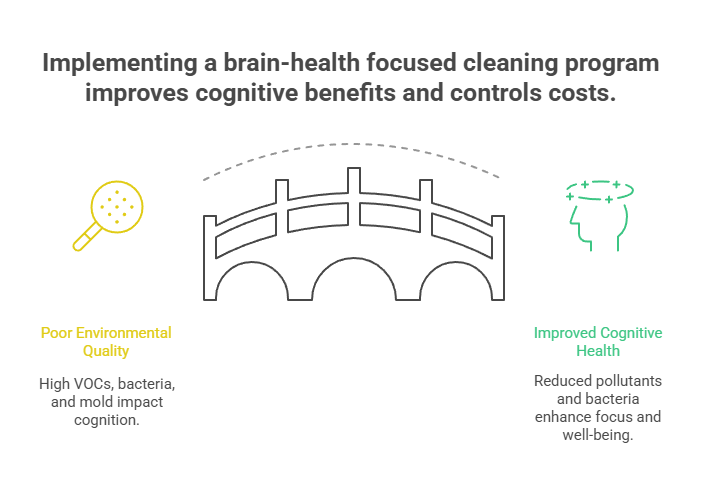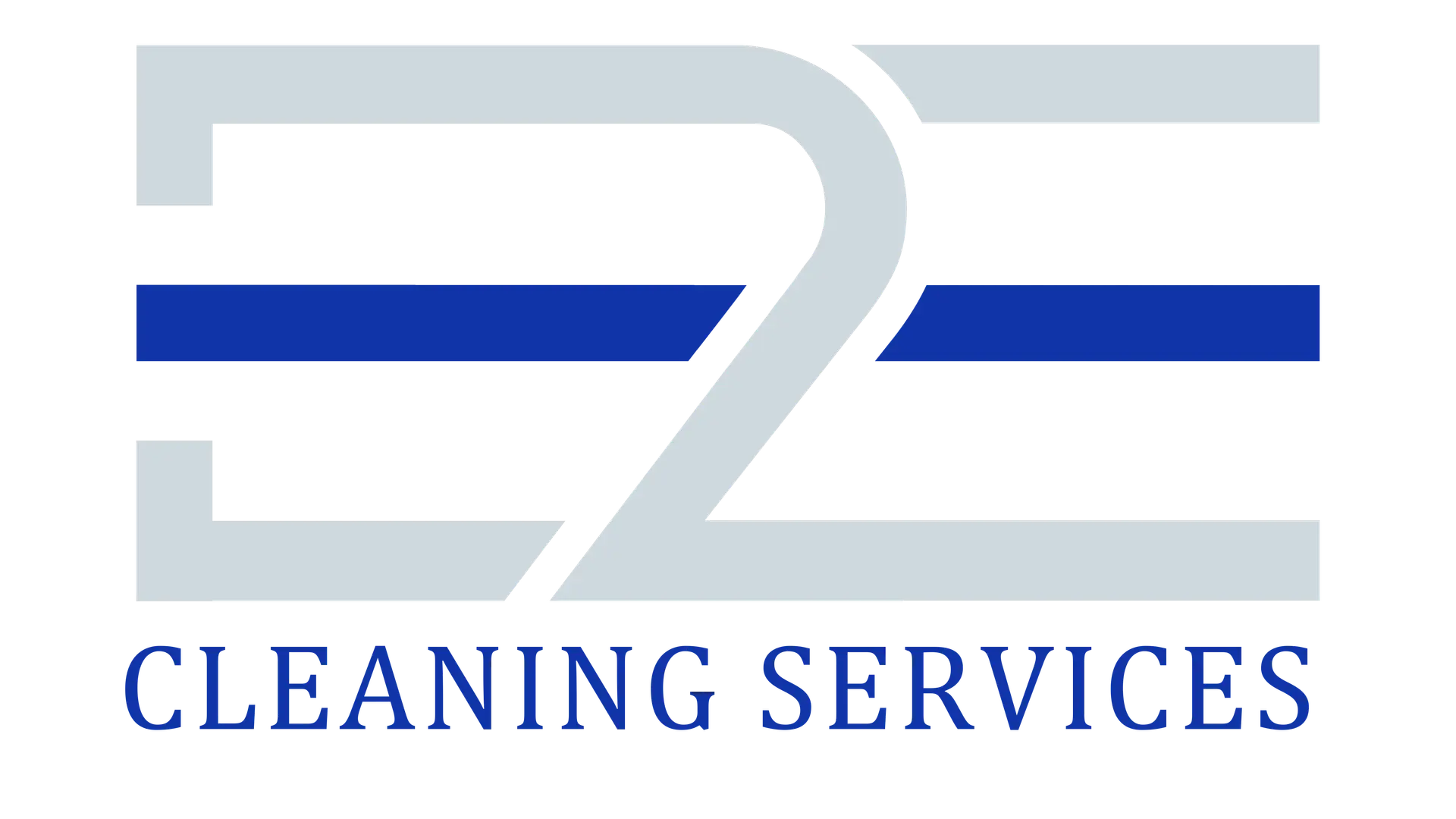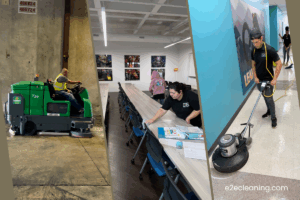We want to discusses the importance of the relationship between cognitive performance and workplace cleanliness in the subtropical climate of Florida.
It is an empirical study, based on best-practice principles, that demonstrates how efficient commercial cleaning processes can enhance brain health of employees, boost productivity measures and positively affect business return on investment.
Facility managers and business owners can find practical approaches to utilizing cleaning as a powerful tool of workplace wellness and operational excellence in the discussion.
Florida’s Workplace Environment Challenge
Florida business organizations are faced with a variety of factors that directly impact worklplace cleanliness and therefore, the cognitive performance of the employees. The subtropical climate creates the conditions that can significantly deteriorate the indoor environmental quality ans subsequently the brain functioning when not controlled.
With the average humidity levels in the year round that are usually higher than 70 %, condensation is formed in carpets, wall cavities and HVAC systems, creating conditions favorable to the growth of mold colonies that release neurotoxic spores into the air.
These tiny particles are able to move freely without anyone noticing them resulting in neuroinflammation and cognitive impairment long before any apparent mold growth is observed.
This is worsened by the fact that pollen season in Florida are long. Allergens such as oak, grass, and ragweed enter buildings via ventilation ducts and open doors. They land on surfaces and are then recirculated.
For the 30 % of employees who exhibit allergic sensitivities, this can result in a lack of concentration, higher error rates and impaired decision-making skills.
In addition, warm temperatures and high humidity increase the rate of off-gassing of volatile organic compounds (VOCs) in office furniture, carpeting, and cleaning products. Neurological performance can also be affected by low doses of these chemicals in the air; acute exposure has been linked to processing speed and memory loss.
According to occupational health experts of the University of Florida, the environmental conditions in Florida are a perfect storm of cognitive disruption in the workplace. High humidity, allergens, and faster chemical off-gassing contribute to a neurological load that can be measured to affect employee performance.
To business owners and facility managers, the awareness of these Florida-specific challenges is the initial step in the process of establishing cleaning procedures that would protect not only physical infrastructure but also human cognitive capital.
The Science-Backed Connection: Clean Environments and Brain Function
The linkage between environmental cleanliness and cognitive performance has a large amount of scientific support.
Time and again, It has been empirically demonstrated that the brain’s processing ability is signisignificantly influenced by the quality of the conditions that surround it.
The study, which was published in Environmental Health Perspectives, was a landmark Harvard investigation that showed that those who worked in well-ventilated spaces with low levels of indoor pollutants had higher cognitive scores by 101 % compared to those in regular office environments.
This dramatic difference was most apparent in crisis response, information utilisation, and strategic thinking, which are functions that are essential to productivity in the workplace.
The physical clutter creates what neuroscientists call visual noise, which forces the brain to process things that are irrelevant. Researchers at Princeton University have determined that this visual disorder competes with neural resources, thus reducing the ability of the prefrontal cortex to screen out distractions and maintain focus on high-priority tasks.
Therefore, a messy desk or a chaotic working environment forces the brain to use its resources to block out irrelevant information rather than solving the issue at hand.
Another major cognitive barrier is airborne particulates. Fine dust and allergens also cause inflammatory reactions, which are not limited to respiratory symptoms, and inflammatory markers enter the brain through the blood-brain barrier and interfere with neural communication, thus affecting executive functioning.
Since workplaces in Florida are humid, which promotes the development of dust mites, frequent deep cleaning of carpets and upholstery thus obtains neurological significance.
Biological contaminants, including bacteria and viruses, not only make one sick, but also produce an increased state of immunological alertness. The immune system is stressed and energy is diverted to the higher cognitive processes, which suppresses the creative thinking and complex problem-solving abilities.
This biological cognitive load can be minimised through professional sanitisation procedures that focus on high-touch surfaces, which in turn ensures optimal brain performance.
Poor cleaning also poses a threat to cognitive performance in the form of chemical irritants. Most of the common cleaning chemicals are neurotoxicants that accumulate in poorly ventilated areas, interfere with neurotransmitters, and cause headaches, mental fatigue, and poor concentration, which are often blamed on work stress instead of environmental exposure.
Neuropsychologist Dr. Amanda Rivera notes that the brain receives about 11 million bits of information per second. Environmental distractions and pollutants have a major effect of degrading this processing capacity, which directly affects performance measures at the workplace such as quality of decisions and response time.
Guarantee a clean and sanitized facility. Improve your workplace happiness.
Measuring the Productivity Impacts in Florida Workplaces
The mental benefits of clean workplaces are directly related to measurable productivity gains of Florida businesses. These benefits can be evaluated in various dimensions, thus offering strong evidence on the need to invest in professional cleaning services.
One of the simplest metrics is the reduction in absenteeism. Companies with extensive cleaning regimes usually record an average of 30 % reduction in sick leaves particularly those associated with respiratory diseases and allergies.
Considering the average annual cost of an absent employee to be around $ 2,650, this reduction saves the organization a lot of money especially for medium and large organizations.
The rate of task completion is also significantly enhanced in well-maintained settings. A controlled study of Florida accounting firms showed that workers in offices cleaned by professionals performed standardized tasks 15 % faster and with 22 % fewer errors as compared to those in offices that were cleaned by inadequate or sporadic janitorial cleaning services.
This efficiency was most evident during the allergy seasons and directly after hurricanes when the humidy is at its worst.
The ability to stay focused during the workday, referred to as cognitive endurance, is very sensitive to the quality of the environment. Businesses in Florida that track employee productivity using project management software have an average of 27 % decrease in the afternoon performance decline after implementing advanced cleaning measures.
This long-term efficiency is particularly beneficial when it comes to knowledge-based industries, where the quality of output is directly linked to the mental stamina.
Creative problem-solving skills also show improvements that are measurable. South Florida design firms and marketing agencies have reported a 31 % rise in the number of new solutions that they come up with in their brainstorming meetings since they have installed hospital grade air filters and introduced twice-weekly deep cleaning routines.
The other quantifiable benefit is employee retentio: According to survey data provided by the Florida Chamber of Commerce, cleanliness in the workplace is one of the five most important determinants of job satisfaction, especially among millennial and Gen Z workers.
Firms that have written cleaning procedures have a 24 % reduction in turnover which is a significant savings considering the average cost of replacing a professional employee is between 15,000 and 30,000 dollars.
A few studies of Florida businesses prove that the implementation of improved cleaning procedures can increase the level of productivity by 3-5 % annually within the first three years of the process. This leverage can be explained by the reduced exposure to workplace pollutants and by the fact that employees have developed better concentration habits.
The results indicate that such productivity benefits can be converted into tangible fiscal benefits, thus making workplace cleanliness an investment in employee health and organizational output.
Strategic Cleaning Protocols for Maximum Brain Health
Cleaning Protocols should address Florida´s unique environmental challenger while supporting indoor air quality.
Key evidence-based practices include:
Air Quality Management Systems
Such systems have to be able to deal with the high humidity and allergen problems in Florida. The HVAC system maintenance must involve the use of high-efficiency particulate air (HEPA) filtration that can capture particles as small as 0.3 microns.
In some of the most humid areas like South Florida, additional dehumidification might be required to keep the relative humidity below 50 %, the level at which dust mite and mold growth increases rapidly.
To achieve the best cognitive advantage, air filtration systems must be professionally inspected once a month and the filters replaced every three months, although it is recommended that these systems be maintained more frequently during high pollen seasons (February-May and September-October in most areas of Florida).
Surface Disinfection Protocols
Use EPA-registered, hospital grade desinfectants on high-touch surfaces daily. Focus on shared equipment including copiers conference room technology, and break-room applainces.
Choose products that effectively eliminate pathogens, includign coronavirus, without harmful chemical residues.
The mode of application has a significant impact on effectiveness: electrostatic sprayers have 65 % improved coverage compared to conventional methods by producing a charged mist that surrounds surfaces and reaches crevices where microorganisms can be found.
Desinfect after business hours to allow proper dwell time and ventilation before employees return.
Flooring Maintenance
It is especially critical in Florida climate. In humid environments, carpets may contain as many as 100, 000 dust mites per square yard, providing a constant supply of allergens that affect air quality then mental clarity.
It is advisable to follow a three-level strategy:
- Vacuuming of HEPA-filtered equipment on a daily basis
- Every two weeks low-moisture extraction cleaning
- Deep steam cleaning every three months to a temperature of over 130°F to kill off mite populations
Hard floors also require microfiber mopping systems which capture the particles rather than releasing them back into the air. Low-VOC floor finishes are used to avoid the cognitive impairment that occurs with chemical off-gassing.
Mold Prevention Systems
It offers priceless safeguard to both the physical structure and neurological wellbeing. Areas that are prone to water (particularly windows, under sinks, and near the HVAC condensation lines) should be inspected every two weeks.
Maintenance personnel must be trained to identify the early warning signs of water intrusion because mold can form colonies in 24-48 hours when exposed to moisture.
Thermal imaging is a sophisticated tool that is able to detect hidden moisture before visible molds. In the case of buildings located in flood-prone regions of Florida, antimicrobial treatments of carpeting and wall bases should be considered to prevent fungal growth when the humidity is high.
The main difference between standard and health-focused cleaning protocols is systematic implmentation. Irregular or sporadic cleaning cannot maintain the consistent environmental quality needed for optimal indoor conditions.
Implementation Roadmap and ROI Analysis
A brain-health-based cleaning program requires a disciplined planning and accurate measures of ROI. The managers that go through this route require a clear guideline on how to get the cognitive benefits and at the same time regulate their spending.

Assessment Phase (Weeks 1-2)
Begin with a decent environmental analysis in order to give the base conditions:
- Indoor air quality testing which determines particulate matter, VOCs, CO2 and relative humidity
- Bacteria and fungal contamination surface sampling
- Moisture mapping to identify the areas that are susceptible to molds
- Wellness surveys of employees to determine the present mental state (concentration issues, headaches, tiredness)
This data will act as a reference point in monitoring the ROI accurately and point out areas of priority intervention. The cost of assessment, which is usually between $1,500 and $3,000 , is about 5 to 8 % of the total budget of implementation.
Protocol Development (Weeks 3-4)
Write personal cleaning specifications that are based on the assessment results and the characteristics of the facility:
- Environmental risk and traffic based cleaning frequency schedules
- Selection of low-VOC products and environmentally preferable products
- Equipment specifications that are HEPA friendly and electrostatic friendly
- Programs like ATP testing procedure and frequent inspection are quality-assurance schemes
In the case of Florida businesses, the protocols must also consider the hurricane preparedness, and include water intrusion clean-up and quick mold prevention.
Implementation Phase (Months 1-3)
During the initial phases of implementation, pay attention to the standard procedures and training of employees:
- Provide detailed training on brain-health cleaning protocols
- Put in place open communication lines on feedback
- Putting in place quality and compliance tracking system
- Periodic air and surface sampling as a progress monitoring tool
The initial 90 days can produce the greatest gains, while particulate-matter levels can be reduced by 45 to 60 % and surface bacterial counts by 80 to 95 %, when the protocols are implemented correctly.
ROI Analysis
In the case of typical Florida office settings, the cost of brain-health cleaning protocol costs approximately 15-20 % more than the cost of standard janitorial services. However, the cost is more than compensated by the productivity:

Other advantages may be:
- The average rating of employee satisfaction increased by 22 %
- A 18 % reduction in healthcare claims on respirations
- Maintenance costs of HVAC reduced by 15 % because of less contamination of the system
When properly implemented, enhanced cleaning protocols can deliver measurable returns within 4-7 months trough improved productivity abnd reduced sick days. Few workplace investments offer comparable financial benefits while silmultaneously improving employee satisfaction.
Conclusion: The Competitive Advantage of Cognitive Clarity
The connection between the cleanliness of the environment and cognitive performance gives Florida businesses a strong competitive edge. With the implementation of science-based cleaning procedures that are meticulously designed to address the unique climatic conditions in the state, organisations can realise quantifiable improvements in employee performance, satisfaction, and retention.
It is convincing that these dividends are far beyond the minimums of appearance or hygiene. Clean environment enhances the processing capacity of the brain, allowing employees to think more clearly, creatively solve problems and concentrate more consistently.
In the knowledge based economy, these cognitive advantages are converted into hard business results.
The following actions are clear to facility managers and business owners. Invest in professional cleaning services that are aware of the neurological effect of their activity. Design detailed guidelines, which meet the environmental needs of Florida.
Frequent testing and constant monitoring are the key to continuous improvement, and the time spent on communicating these processes to the employees will demonstrate their importance to the organisation in terms of their cognitive health.
Firms that recognize and respond to this potential relationship will gain a competitive edge in a more competitive environment. They will be able to attract the best talent, maximise productivity, and develop a reputation as innovative leaders in workplace wellness by creating the environments that optimise brain performance.
The message is clear and compelling: cleanliness is not just skin deep in Florida, it is the basis of better brain performance and better business results.






